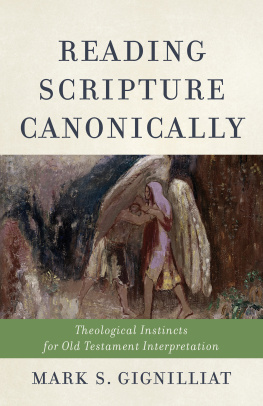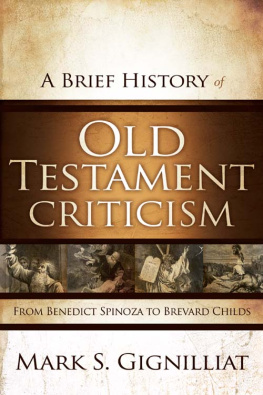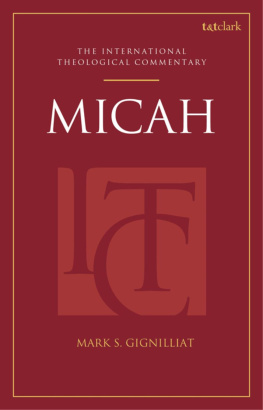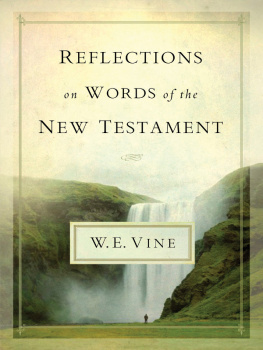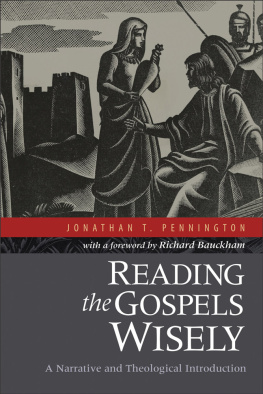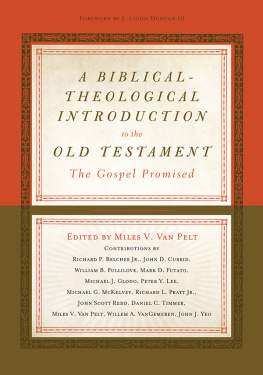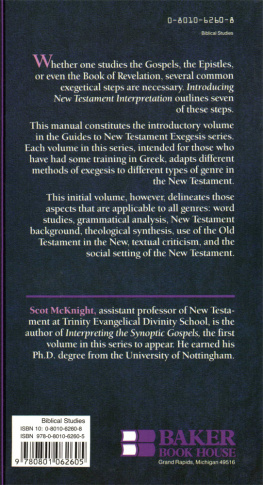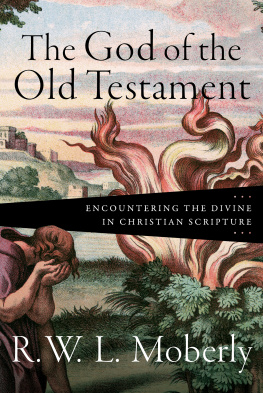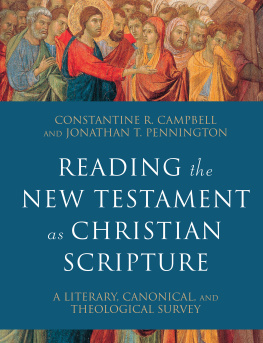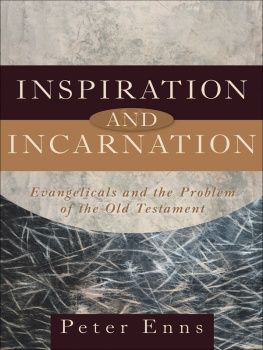1. Scripture and Canon
2. Sanding with the Grain: Final Form and Canonical Shape
3. Canonical Intentionality
4. Canon and Textual Criticism: The Search for the Christian Bible
5. God as Triune, and Exegetical Metaphysics
6. The Trinity and the Old Testament
Acknowledgments
I havent written many books, but certain features of my acknowledgments appear in every one of them. I thank Chris Seitz, my Doktorvater , for modeling the combustive effects of a fertile mind conjoined with a deep knowledge of the theological disciplines, particularly his own field. Don Collett offered constructive insights to several chapters. His friendship and theological mind are gifts I value.
I thank my dean, Timothy George, and Beeson Divinity Schools associate dean, Grant Taylor, for their support and encouragement to think and write. My colleagues at Beeson are as collegial and amiable as any professor could hope for. I thank especially Ken Mathews, a colleague whose friendship and wisdom I cherish. I also make especial mention of Lyle Dorsett, who retired last year after decades of faithful teaching in various institutions. I want to honor these two esteemed colleagues for their contributions to our learning community and Christs church. I am grateful to my student James Henderson for reading a draft of this book. James offered helpful reflections from a student perspective and provided his own substantive input.
Stephen Chapman offered valuable feedback and criticism on a prepublished version of this book. I didnt follow Stephen at every turn, but I remain grateful to him for helping me clarify my thought and writing. Colleagues in the field who provide friendship and candor are gifts. Jim Kinney is an able editor and sagacious critic. He continually pressed me to clarify my audience and trim the rhetorical fat from this volume. The book is better for his critical role in its production. My thanks go out to Jim and the publishing team at Baker Academic. Though it goes without saying, any residual problems in the book are my own.
As always, Naomi and my children are gracious presences in every aspect of my life, including this one. Naomi took the time to read this book and offered invaluable feedback. I remain grateful for her encouragement and commitment to me and our family. Ill admit to feeling disjointed at times between my life as a husband and father and as a teacher/writer. The latter seems light years away when Im sending kids to home plate while coaching little league. Yet Im so grateful that God in his providence has combined all these facets of my existence into some kind of symphonic harmony. To God be praise.
Holy Week 2018
Introduction
I tell my students about an early preaching experience of mine. I was young, in my early twenties. I had taken several years of Greek and emerged from my undergraduate experience with misplaced confidence in my ability to teach and preach the Scriptures. Then my number was called for a preaching engagement. I was ready. I had done it before. Nothing new. With Greek text and commentaries spread around me, I entered the fray as I prepared a sermon series on Hebrews 11. What I wasnt prepared for was the small crisis awaiting me. As I studied, parsed verbs, and explored lexical threads, I realized that the sermons I was writing were primarily descriptive in nature. I was talking about Hebrews 11, providing lexical information on faith, and offering background material on various intertextual traditions. In effect, my sermons were learned (I tried) talks on Hebrews 11. They were not sermons crafted for the sake of an encounter with the living God. I felt stuck.
Im overstating the narrative a bit, Im sure. Even my younger self wanted sermons that were truly sermons and not lectures. But I do remember feeling troubled. I felt like I was struggling to put on a blazer that didnt fit right. Something was off. It was the living character of the biblical texts that escaped me. Or at the very least, I struggled to lean into this lived dynamic, the fuzzy line where teaching or description yields to preaching, theologizing, and arrestment. Of course, such an effect remains within the provenance of the Holy Spirits teaching office. Yet the posture, expectations, and (dreaded word) methods that one brings to Holy Scripture will either serve or obstruct Scriptures reason for existence.
I am writing this book with my younger self in mind. Im talking to him and students of all types who have some working knowledge of the historical-grammatical or historical-critical study of Scripture. I too had some exegetical tools at my disposal, and the target audience of this book is students, broadly conceived, who are not completely new to the scene of biblical studies. Yet, perhaps like me, they feel stuck. They are either searching for or in need of theological and hermeneutical instincts that will help them read and engage Holy Scripture as a living witness.
This book is not a be-all or end-all for this purpose. In fact, my primary, if not sole, focus is on reading the Old Testament. (As an aside: I remain on an exorcists quest to stamp out Marcions pestering presence in Christs church: Marcion, be gone!) Testament and trinitarian legacy of the early church would not exist without that interpretive impulse. All of this is to say that the scope of this book, with its focus on the Old Testament, is limited from a Christian canonical standpoint. Nevertheless the Old Testament is fertile soil for working out these Christian reading practices. Theological categories and instincts are requisite for engaging the Old Testaments theological subject matter. So this book should equip readers with a theological grammar and a set of interpretive instincts to aid in their reading of Scripture as an enduring canonical witness.

